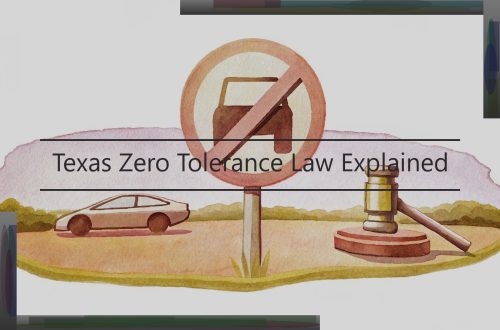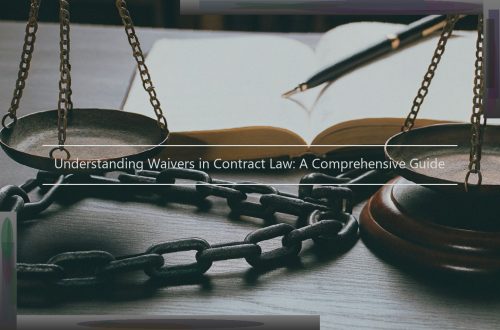Understanding Pennsylvania’s Standard Real Estate Agreement of Sale
What is a Standard Agreement of Sale (SAS)?
A standard agreement of sale, commonly referred to as a purchase agreement, is the primary document regulating the sale and purchase of real property; you might also hear it called the purchase and sales agreement. While the agreement is not a deed and it does not transfer title to real property from the seller to the buyer, it does represent the meeting of the minds between the two parties to the transaction. As you dig deeper into the standard agreement of sale, you will find that it is best understood when separated into its subsections, some of which are described here .
The agreement section contains many important details, such as the agreed upon price, the name of the real property being sold and the allocation of eventual credit costs and deposits. The general purpose of this section is to immediately answer the question of what the seller is willing to sell and what the buyer is willing to purchase.
The inspection section tells both the buyer and seller how specific issues will be handled. For example, how will issues found during the inspection period be discussed? What happens if inspection fails to meet the satisfactory standards of the buyer, or if inspection reveals structural issues that are unacceptable?

Key Terms and Provisions in Pennsylvania SASs
There are essential components included in a Pennsylvania real estate agreement of sale. The buyer and seller information includes both parties’ names, addresses, the terms for payment of commission to the broker (if any), and contact information. The property information details the address and location for tax purposes, together with a legal description that identifies the property.
The property also must be identified by a date for settlement, required disclosures, some provisions for maintaining the condition of the property, the term of the agreement, whether they want a home inspection, and any lender involved, with the amount of the down payment.
The anticipated closing date is an important part of the agreement, as it’s the date of transfer for ownership of the property. If you have a lender involved, the bank may require that the title company clean up any defects from the title search. Dealing with plumbing or heating repairs may also slow down a closing.
Deposits show a good faith attempt by the buyer to purchase the property, and are essentially funds used to begin the purchase process. Unless you are paying cash, your lender will require some amount of deposit at closing, typically ranging from the $500s to $1,000s, depending on the cost of the property.
Contingencies are the "ifs" of the agreement of sale. Specific examples include more thorough inspections (radon gas, air quality, pest, structural issues), financial contingencies (such as the sale of another property), contingency for the sale of a new home, and financing requirements (such as preapprovals, loan application acceptance).
Residential disclosures include federal lead paint, Pennsylvania lead paint, radon disclosures, and any impact of oil or gas drilling, to name a few. Property information is typically the responsibility of the seller to disclose if there are any known issues, but it’s the buyer’s responsibility to perform the due diligence necessary to verify property deficiencies.
Legal Considerations and Regulatory Compliance
In Pennsylvania, the Agreements of Sale for residential real estate transactions are bound by the Pennsylvania Real Estate Licensing and Registration Act at 63 P.S. § 455.101 et seq. ("REAL ESTATE HEARINGS") and The Pennsylvania Uniform Commercial Code 13 Pa.C.S. §§ 1101 – 5985 ("UCC"). Acts or omissions that would constitute a violation or penalization under REAL ESTATE HEARINGS as such statute relates to the duties of realtors do not apply to real estate attorneys. For instance, realtors cannot offer a legal opinion or offer to perform legal services for other than themselves without violating the statute. A majority of the REALTORS® Association Code of Ethics is, however, mirrored in the Oath of Attorneys in Pennsylvania Supreme’s Court’s Rule 102 (c).
The Pennsylvania Uniform Commercial Code governs commercial transactions of goods and, specifically with regards to real estate sales, the sale of goods accompanying a real estate Agreement of Sale. Pennsylvania exempts agreements to sell real estate from the statute of frauds. Simply put, there is no writing requirement for a valid contract of sale for real estate in Pennsylvania. Practices vary widely, however, and it is wise to document the transaction. Commercial businesses might have their customers fill out Purchase Orders to complete the transaction. Residential real estate agents may use The Standard Agreement of Sale provided by CAR-DC for their transactions. And attorneys engaged in the commercial aspect of a sale may draft a Letter of Intent that highlights terms for an Optional Clause.
The Standard Agreement of Sale contains blanks for a variety of factors within the categories of price, property, delivery, and warranties of the sale of a property. Additionally, there are optional clauses that memorialize exit clauses for those who have signed the preprinted contract. The Standard Agreement of Sale is in compliance with common law, the Pennsylvania Real Estate Licensing and Registration Act at 63 P.S. § 455.101 et seq., and case law. The agreement also includes a tabulation form for calculating closing costs and lists common title problems for the benefit of the parties.
Common Contingencies in Pennsylvania SASs
Common Contingencies in Pennsylvania Agreements of Sale
As mentioned above, The Pennsylvania Association of Real Estate Boards publishes the "Standard Agreement of Sale". Terms and conditions are sometimes added to this standard form to make it fit a particular sale. The Seller or the Listing Broker frequently request relatively common "addenda" to the Standard Agreement of Sale. The following are the most common forms of addenda that are requested:
Home Inspection Addendum: This form sets a date by which buyers are permitted to conduct inspections of the property. From those inspections the buyers develop a list of items they request be repaired. The sellers generally respond to the buyers once with a proposal for a correction of some of the items, a rejection of some of the items along with an offer of an adjustment in price. The sellers or their agent will then allow the buyers an opportunity to accept the combination of repairs and/or the adjustment of price. If the sellers and buyers come to a final agreement, then the buyers remove the inspection contingency from the Agreement of Sale.
Financing Addendum: In a hot seller’s market it is not abnormal for the owners of a property to desire assurances from the buyers that financing will be in place at the time of settlement. A Financing Addendum may require that the purchasers obtain a "pre-approval" letter from a mortgage broker or lender by a certain date. Once again, if the lenders approval is obtained by the date set forth in the Financing Addendum, then the buyers remove the contingency from the Agreement of Sale.
Sale of Other Property Addendum: A very common addendum to the Agreement of Sale is the Sale of Other Property Addendum. Under this form, the buyer sets forth the address of their current property in the left hand column and provides a closing date for that property in the right hand column. Then, in the second section of the form, the buyers selects whether the sale of their current property must occur prior to the closing of the properties being purchased under the Agreement of Sale (as in a traditional sale) or the Agreement of Sale is contingent upon the sale of their current property (commonly referred to as a Reverse 1031 Exchange). This form allows for some flexibility in the Sale of Property and is particularly beneficial to a buyer when the sale of their property is directly tied to the sale of the property they are purchasing. If the Sale of Other Property Addendum is properly drafted and no time deadlines are violated, the buyer can agree to extend the sale of their property and retain the benefit of an extended time to purchase the new property without fear that the Agreement of Sale is voided.
Parties’ Obligations and Liabilities
The Standard Agreement of Sale for real estate in Pennsylvania is a contract between a Buyer and Seller for the purchase of property. The Seller and all Buyers are parties to the Agreement. The Buyers and Sellers will have to decide whether the Seller should become a party to the Agreement, to be known as the Seller/Borrower, or whether the Buyer will have to obtain a new mortgage in their name. There are many factors to consider when deciding whether the Seller should remain a party to the Agreement or whether to remove the Seller from the Agreement altogether.
The Seller is the current owner of the property being sold with the authority to convey it to the Buyer. The Seller is obligated under the Agreement to convey clear title to the Buyer at the settlement. Many times a Seller will have a mortgage associated with the property. If the Agreement contains a simple Sale and Assumption clause, it provides that the Buyer will assume the current mortgage on the property. The Buyer will be required to inform the lender of the sale and request the lender’s consent to have the mortgage assumed by the Buyer. The lender can refuse to allow the Buyer to assume the mortgage. Caution needs to be given to many loan documents, as some mortgages will provide that the loan may not be assigned without the lender’s consent. Without the lender’s consent to the transfer of the mortgage, the Buyer may be obligated to obtain his or her own mortgage in order to pay off the Seller’s existing mortgage.
Real estate agents are typically involved in the sale of real estate. The agent(s) are licensed real estate agents that have a fiduciary duty to act in their client’s best interest. A real estate agent that is representing both the Buyer and Seller is called a Dual Agent. A real estate agent that is representing only the Buyer is called the Buyer’s Agent. Likewise, if the Seller is represented by a real estate agent who has entered into a representation agreement with the Seller , he or she is referred to as the Seller’s Agent. The relationship between an agent and the principal is governed by common law. Pursuant to the Pennsylvania Licensed Real Estate Salespersons Act, whoever accepts the employment of any person to purchase or sell, or negotiate the purchase and sale, of any real estate shall be deemed to be the agent of said owner as to such real estate, and such employment shall be presumed to be accompanied by an agreement on the part of the agent to act in the interest of the owner. This legal principle means that real estate agents are legally bound to represent the legal interests of their clients in the sale or purchase of real estate, whether the agent is a Buyer’s Agent, a Seller’s Agent, or a Dual Agent. An agent cannot be both a Seller’s Agent and a Buyer’s Agent unless both the Buyer and Seller consent to it.
Legal counsel may be needed throughout the course of the transaction. Legal representation may be needed for many reasons. The Buyer or Seller may need a wills and estates attorney if they are selling property from a deceased estate or they need assistance with planning for their estate after the sale of the property. If there are issues regarding the physical condition of the property, an attorney with knowledge in land use and zoning may be needed to insure that the Buyer’s intended use of the property can be accomplished. Legal counsel is necessary when the property is governed by a Homeowners Association, if there is a title problem or legal dispute over the ownership of the property.
If the Seller will remain a party to the Agreement, then a review of which party pays for legal fees may need to be considered depending upon the negotiating position of the parties. In Pennsylvania, it is customary for the Seller to pay for the preparation of the deed and other closing documents. However, attorneys’ fees are typically paid by the party hiring the attorney. Parties should seek legal advice on the necessity of obtaining legal representation, the type of attorney required, and the ability of the parties to negotiate which party pays for the legal representation.
Steps to Execute a Real Estate SAS in Pennsylvania
Once the seller receives an offer, the parties may engage in negotiations. Such negotiations are often conducted, in whole or at least in material part, via the agent. Once a price is established and other contingencies or conditions are agreed to by the parties, the parties will generally execute an agreement of sale.
In Pennsylvania, the law generally requires that a real estate agreement of sale be in writing.
The essential elements of a real estate agreement of sale include the names of the parties to the agreement, the purchase price, the property description and the closing date. The seller must deliver the property in the condition specified in the agreement. A failure to do so is called a breach of contract, and may itself be a basis for the buyer to sue the seller.
Occasionally, the parties to an agreement of sale will find themselves in the situation of having signed a written agreement but there being a demand from one party for a change in terms, usually the price or closing. Alternatively, a party may not wish to proceed with the closing, and not honor the deal. When this occurs, there is a breach of contract, and the other party can seek either specific performance or damages. Specific performance is a specific request by the party not to perform to be ordered to perform, and act as the court deems appropriate.
Once the agreement of sale becomes effective, the buyer will usually want to examine the property and see if there are any issues. This is accomplished via an inspection, usually by a professional inspector or in some situations, a contractor who will prepare an estimate of items necessary to improve the property. A bill of sale may be requested for personal property items which will remain with the property after closing.
Once the inspections are completed and contingencies have been satisfied or waived, the parties will usually be on track for a closing. An attorney or title company will supervise the preparation of a deed to transfer the property to the buyer. The new deed will be recorded at the courthouse in the county where the real estate property is located.
Challenges and How to Avoid Them
The most likely pitfalls buyers and sellers encounter will be in the financing and deposit sections of the Pennsylvania Standard Agreement of Sale. As discussed above and in my earlier blog on the three pieces of Pennsylvania real estate purchase law (Real Estate Sale Agreements, Residential Real Estate Disclosure Law, and Seller’s Property Disclosure Law), every sale of residential property in Pennsylvania must be in writing and signed by the party to be charged. The Pennsylvania Standard Agreement of Sale (the "Agreement") is just one example of an acceptable written purchase and sale agreement. (Standard Agreement posted with permission of the Pennsylvania Association of REALTORS®.) This discussion regards pitfalls that may arise after the creation of the Agreement, which should be interpreted in accordance with the intent of the parties. The Agreement contains many blanks which can be filled with different terms from the standard form market. Some terms are more common than others, and the lender may refuse a loan based on those differing terms.
I recommend that the buyer and sellers always work with their respective real estate agents who will ensure that the Agreement fits within the lenders requirements. If the lender requires changes which are unacceptable to the buyer or seller, then the Agreement may need to be canceled (as discussed below). If they must cancel, it is common to cancel before the appraisal is ordered to avoid the $400 – $800 expense of the appraisal. Of course, if they inspect their new home, it will also cost about $100 for a home inspection and a few thousand dollars for a test of the septic system and/or water supply.
I also recommend that the buyers obtain a mortgage commitment letter before signing the Agreement. A mortgage commitment letter is a letter from the lender committing to give the buyer a loan for a particular property . If the buyer and seller can get a mortgage commitment letter before signing the Agreement, there should be no issues as long as the mortgage commitment letter is valid for at least one month after the Agreement is executed. Likewise, the lender should issue an updated mortgage commitment letter in Amendments and Notices, which should have at least one month remaining prior to the expiration date.
Another common pitfall is the deposit section of the Agreement. The deposit section will require a deposit in order for the buyer to sign the Agreement. The Agreement also states that if the buyer does not complete the purchase by the date specified without litigation, the deposit shall be paid as liquidated damages to the seller. In other words, if the buyer backs out for a good reason then he shall get his deposit back, but if the buyer backs out for a bad reason, the seller will keep the deposit as payment for holding the house open for the buyer and for doing any work to maintain the house.
A common pitfall involves the deposit not being forwarded to the closing agent within the time prescribed by the Agreement. It is very easy to overlook this requirement, and the buyer always seems to be in a hurry to take possession. This is an issue that must be addressed between lenders and the buyers before the Agreement is executed. I suggest that all funds be delivered to the closing agent ten days prior to the closing, and that the lender also do a "soft" check to ensure that the buyers funds are good.
These are all common issues that real estate agents should talk over with the buyers before executing the Agreement. Again, the safest bet is to ensure that the buyer has a valid mortgage commitment letter and the deposit funds are good before executing the Agreement.



